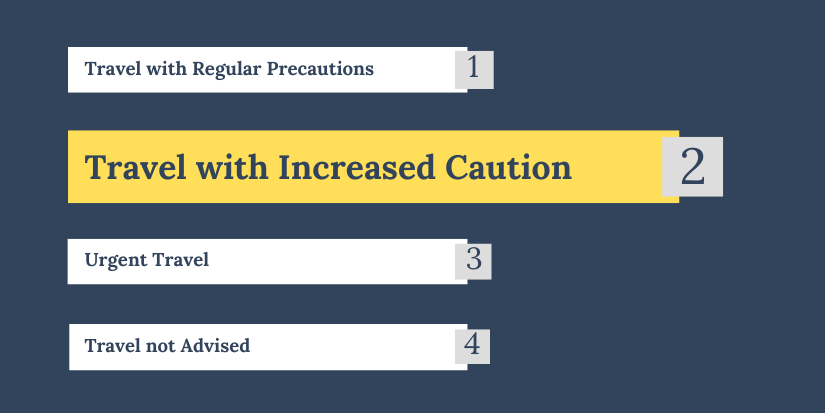
VISA REGIME
For holders of national passports and other travel documents: Visa required
For holders of diplomatic and official passports: Visa required
Note: For stays up to 10 days, a visa is obtained immediately. For stays exceeding this period, a full visa issuance procedure will apply. Holders of an emergency travel document in transit require a visa
ENTERING AND LEAVING THE COUNTRY
Citizens of the Republic of Serbia need a visa to enter Djibouti.
Single-entry visas for family, business and tourist stays may be obtained via the Djibouti Government website: https://www.evisa.gouv.dj.
Travellers are allowed to bring into and take out of Djibouti up to 5,000 US dollars, up to 200 cigarettes, one bottle of drink and one bottle of perfume.
SOCIAL SECURITY AGREEMENT
No social security agreement has been concluded.
USEFUL INFORMATION
HEALTH SITUATION — Due to the danger of malaria, travellers are advised to use mosquito repellents and antimalarials.
Travellers should only drink bottled water and make sure to wash fruits and vegetables thoroughly.
SECURITY SITUATION — The crime rate is not high. Attacks on foreigners are very rare. Petty thefts and pickpocketing are likely in open markets in the capital and in places with a lot of people. This risk is reduced in smaller cities.
Nevertheless, citizens of the Republic of Serbia who intend to travel to Djibouti are advised to follow information on the security situation.
OTHER INFORMATION — The local currency is the Djiboutian franc. It is the only means of payment in the country. Foreign currency (euro and US dollar are the most common) can be exchanged at banks. Payment cards, in principle, are accepted, and primarily in Djibouti. However, the number of places with payment card terminals and ATMs is limited. Therefore, travellers should not rely on this type of payment or withdrawing cash.
A permission must be sought for taking photos of people, animals and facilities. It is forbidden to take photos of government buildings, bridges, dams and similar structures.
Before travelling, travellers should check whether their mobile network operator has a roaming services contract with Djibouti Telecom.
Contact information:
During your stay in Djibouti, for consular assistance and protection, you may contact the Embassy of the Republic of Serbia in Nairobi (address: 6th Floor, Fortis Tower, Wood Vale Grove, Westlands, Nairobi), via the following phone numbers: +254794588515; +254723163775; (for Serbian citizens in emergencies only: +254734601031) and email: srb.consular.kenya@mfa.rs.
